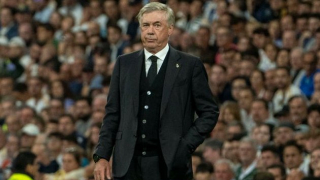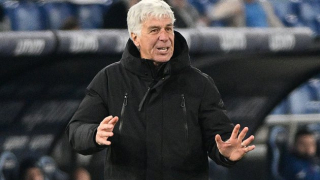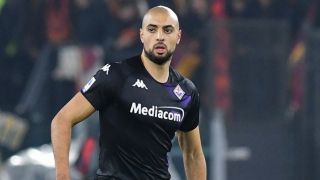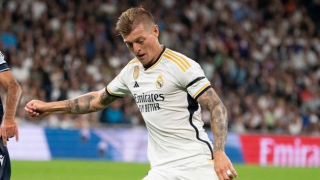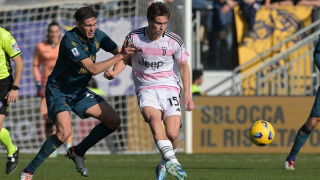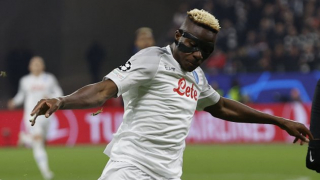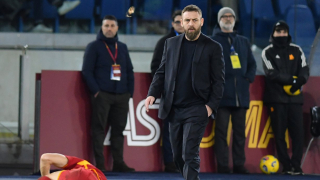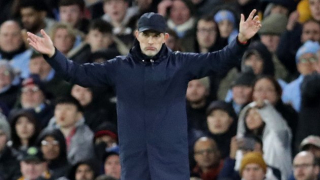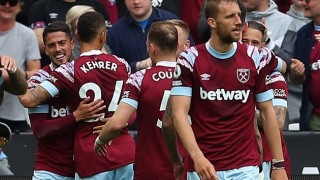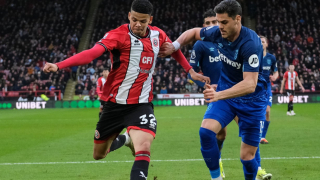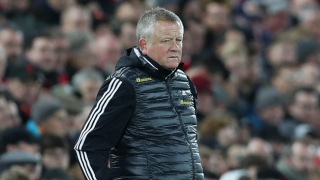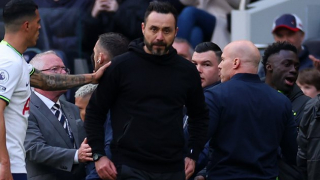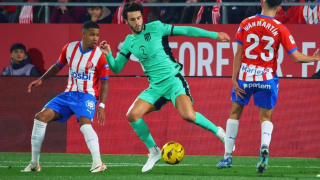Emphatic wins for Chelsea and Liverpool completed a major swing in momentum from the opening two months of the Premier League season, when Manchester City and Tottenham Hotspur looked the most likely to be crowned champions in 2017.
But the wins have dried up for both Pep Guardiola and Mauricio Pochettino's sides, while those of Antonio Conte and Jurgen Klopp are looking unbeatable of late.
Manchester United's 3-1 win at Swansea City has soothed fears that Jose Mourinho is in permanent decline, and plucky wins for Sunderland, Burnley, and Hull City suggests that the relegation dog-fight might be closer fought than we had earlier anticipated.
In a weekend when only four of the bookies' favourites were winners, we take a look at the tactical lessons learned from round eleven.
1) Tactical innovation isn't as easy as Conte and Guardiola make it look
Both Everton and Watford trialled new formations over the weekend - Ronald Koeman abandoned his usual 4-2-3-1 for a 3-5-2 shape; Walter Mazzarri changed from 3-5-2 to 4-4-2 - and both failed miserably.
Both the Toffees and Hornets looked confused and disorganised throughout the 90 minutes, proving that swift tactical reshuffles are often ill-advised.
Everton's change was presumably made in an attempt to stifle Chelsea's space in the central attacking third, where Eden Hazard and Pedro have been running wild in the new formation. However, these two players simply shifted out wide to occupy the huge spaces between the outside centre-backs and the wing-backs.
Having stretched the pitch and got the ball into their playmakers quickly, Chelsea then made numerous runs from out to in, leaving Everton three versus three as Conte's side counter-attacked. It was a complete shambles.
Watford didn't fare any better against Liverpool.
Their attempts at a defensive 4-4-2 – with Troy Deeney and Odion Ighalo rarely tracking back - saw Nordin Amrabat and Roberto Pereyra drop far too deep, leaving the away side with just two midfield players actually confronting Liverpool. Given that Klopp's team are very narrow and pour forward in numbers it was an inexplicable tactical error.
Dramatically altering a formation seems easy when the top teams do it, but the managers of Watford and Everton will have learnt a valuable lesson this weekend - Don't try too much too fast.
2) Liverpool impress by scoring atypical goals
Since Watford's confidence was destroyed by the time the second half kicked off, it is only Liverpool's first three goals that are worth analysing.
Klopp's team were rampant in that opening 45, but what was interesting was that they didn't manage to create many goalscoring opportunities via their traditional high-tempo, short-passing football.
Liverpool couldn't counter-press because Watford made no attempt to pass out from the back, and although the visitors' awkward formation left them open in the middle (as above) their flat five proved difficult to penetrate.
It quickly looked like Liverpool may suffer from the same frustrating afternoon as Man City on Saturday or Man United the weekend before, but instead they proved their title credentials by varying their build-up play and proving that there are goals everywhere in this team.
The first came from a simple corner move, with Sadio Mane flicking the ball into the far corner, and after Phillippe Coutinho scored a trademark Klopp goal, Emre Can added the third with another header from a cross.
Man City, by comparison, do not have the variation to do this.
Liverpool broke the deadlock – and set-up a rout after Watford were forced to chase the game – by scoring in old-fashioned, un-Klopp-like ways. That is a true sign of champions in the making.
3) Spurs still stuttering but they have a bright future in a 3-4-2-1
Pochettino will have been satisfied to take a point against Arsenal, who managed the game nicely after an initial period of pressure from the visitors. Spurs looked very defensively robust with three at the back, and the extra defensive player behind Mousa Dembele limited Mesut Ozil's influence over the game.
It was not a perfect performance, but there were flashes of quality that suggest Pochettino has found the right solution to their goalscoring problem. In the first 30 minutes Christian Eriksen consistently found space behind Francis Coquelin and Granit Xhaka, receiving the ball on the counter in a dangerous position in the final third. He was only able to do this because the formation released him into a more central role that carried no defensive responsibilities.
He was part of a central attacking midfield duo that floated behind Harry Kane – mimicking exactly the formations at Man City and Chelsea that have allowed Kevin de Bruyne, David Silva, Eden Hazard, and Pedro to flourish.
A 3-4-2-1 also gives licence to Danny Rose and Kyle Walker to burst forward more regularly, which in turn opens up space in the middle for Eriksen and Heung-Min Son.
If Pochettino continues with his experiment for the home match against West Ham United, then Spurs should end their seven-match winless streak.
Best of the Week - Pedro
Chelsea's victory against Everton on Saturday night was one of the best performances of the Premier League era, and it is difficult to pick out a single individual amongst such a perfectly synchronised team.
But Pedro, who has lots of experience playing as part of a front three for Barcelona, was particularly important in setting the early tempo.
He collected a goal and two assists in 70 minutes at Stamford Bridge, running into the channels and constantly making himself available to his more defensive team-mates.
Pedro's renaissance will be key to Chelsea's title bid over the coming months.
Worst of the Week - Swansea's midfield organisation
So far, Bob Bradley has failed to close up the gap between Swansea's central defenders and their central midfielders – a problem that has plagued them all season and was again crucial in the 3-1 defeat against Man United.
The back four consistently drop deep while the midfield tentatively press, leaving a big space for clever attacking midfielders to dominate (such as Marko Arnautovic and Joe Allen last weekend).
United only managed three shots on target all match, and scored two of these from outside the box thanks to typical disorganisation from the Swans.
Paul Pogba and Zlatan Ibrahimovic deserve credit for their tidy finishes, but Swansea were far too slow in closing down either player, which was testament to the poor communication between defenders and midfielders. Leon Britton was particularly dreadful; he didn't make a single tackle, interception, block, or clearance.

